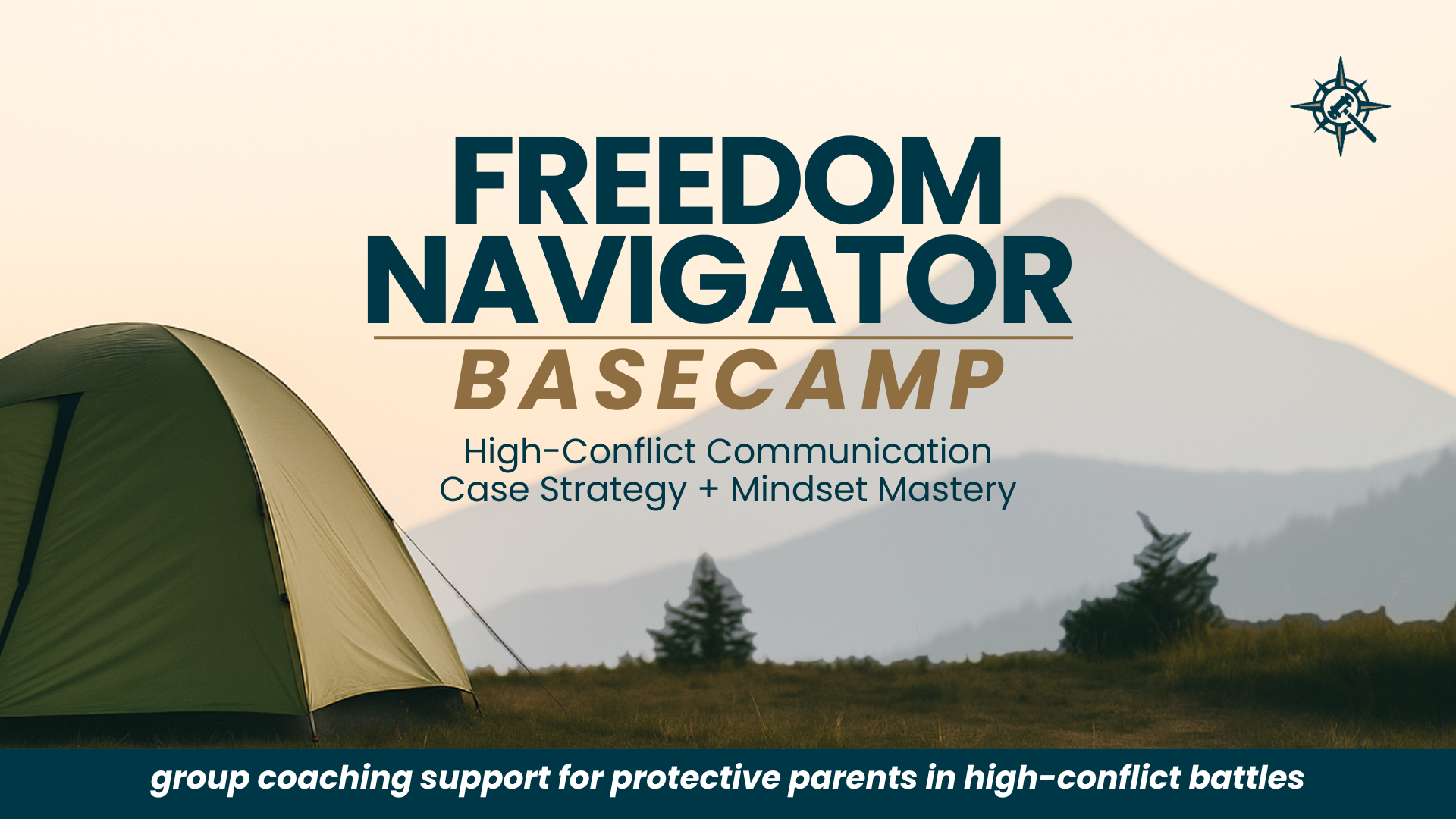Control Is How They Protect Their Power—Even in the Courtroom
Part 2 of 5 - How to Anticipate and Survive Post-Separation Abuse Dynamics in Family Court
If entitlement is the belief that they deserve privilege, then Control is the behavior they use to protect it.
Once your ex’s entitlement is threatened—when you leave, draw boundaries, or push back—they don’t usually back off. They clamp down. This is why advocates in the domestic violence field know that
And the courtroom becomes their new battleground.
Control is how abusers attempt to keep their privilege safe.
What Control Looks Like During Divorce and Custody Litigation
Control isn’t always loud or obvious. In family court, it often shows up in these manipulative, hard-to-prove ways:
Deliberately delaying paperwork to stall progress or wear you down
Using the legal system to punish or intimidate (aka legal abuse)
Refusing to follow medical or therapeutic recommendations
Hijacking logistics (like refusing to cooperate with custody exchanges or school coordination)
Sabotaging your ability to work, sleep, or feel safe
They don’t need full custody to feel powerful. (Even though they may be petitioning for it!)
They just need to do enough to keep you off balance—financially, emotionally, logistically.
Why Control Feels Like Fear
Here’s the cruel but realistic dynamic:
Their control = their security
Your experience = insecurity and fear
That deep feeling of desperation you’re living with? That’s not weakness. It’s your nervous system responding to chronic unpredictability.
Abusers escalate control when their entitlement feels threatened—and you feel the fallout in your gut.
You may be asking yourself:
“Why does this feel like psychological warfare?”
Because it is.
Your ex isn’t fighting fairly—they’re fighting for control. And the more stability you create, the more threatened they may become. Especially if your strength challenges their power.
How to Spot It
To prep effectively, start with this question:
What have they controlled in the past—and how?
-
Did they control the finances?
→ Expect hidden accounts or under-reported income on affidavits.
-
Did they control the kids’ routines?
→ Expect resistance to shared decision-making or parenting plans.
-
Did they control how others saw you?
→ Expect narrative-spinning, flying monkeys, or fake concern for your “mental health.”
The best predictor of future behavior is past patterns. Don’t get caught off guard hoping they’ll be reasonable. Instead, assume they’ll double down on whatever methods of control worked for them before—and plan accordingly.
Coming Next: COERCION – When Control and Entitlement Join Forces
When entitlement and control intersect, they form something even more dangerous: coercion. That’s where we go next—because understanding coercion helps you see the game before it’s played, and stop blaming yourself for feeling worn down.
👉 Stay tuned for Part 3 in the series.
Need Help Getting a Step Ahead?
If you’re tired of spinning your wheels and want to feel calm, clear, and courtroom-ready—you don’t have to do this alone!

BASECAMP is my guided coaching program designed to help protective parents navigate divorce and custody court with strategy and strength.
Get plug-and-play templates, step-by-step guides to prep for court, live calls each week, and an inner circle that understands exactly what you’re up against.
🎯 Learn more + hop on my waitlist here.